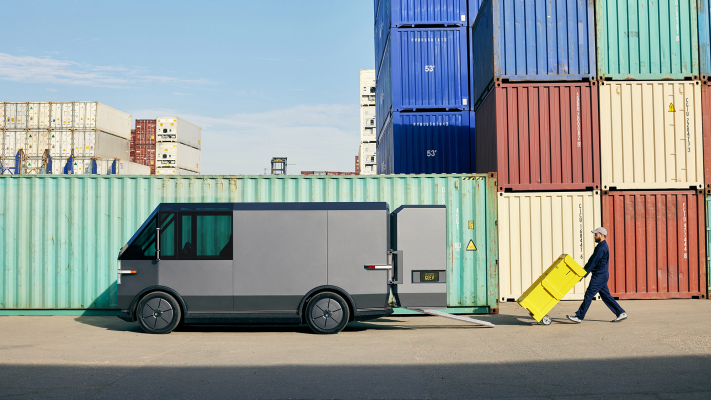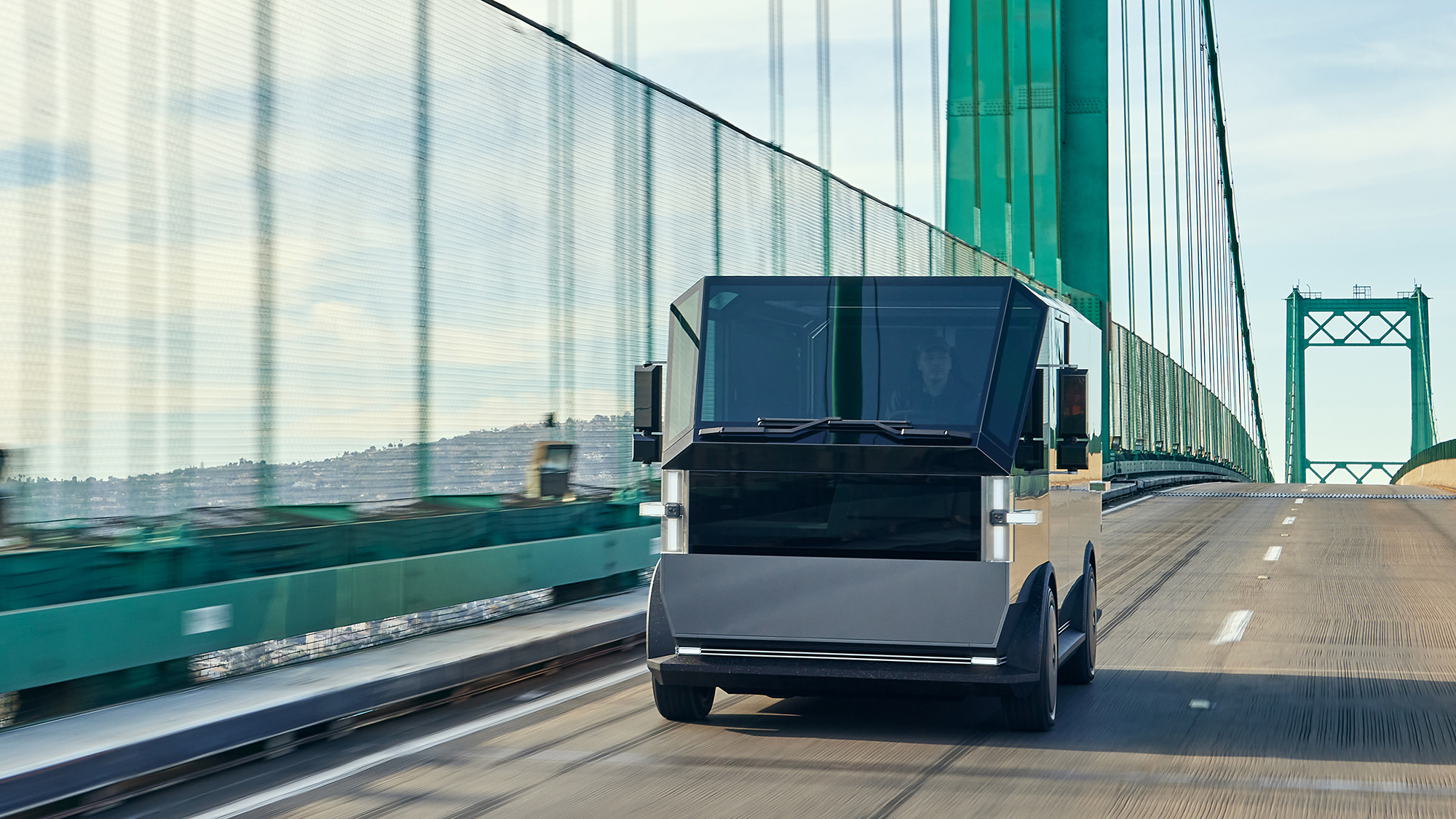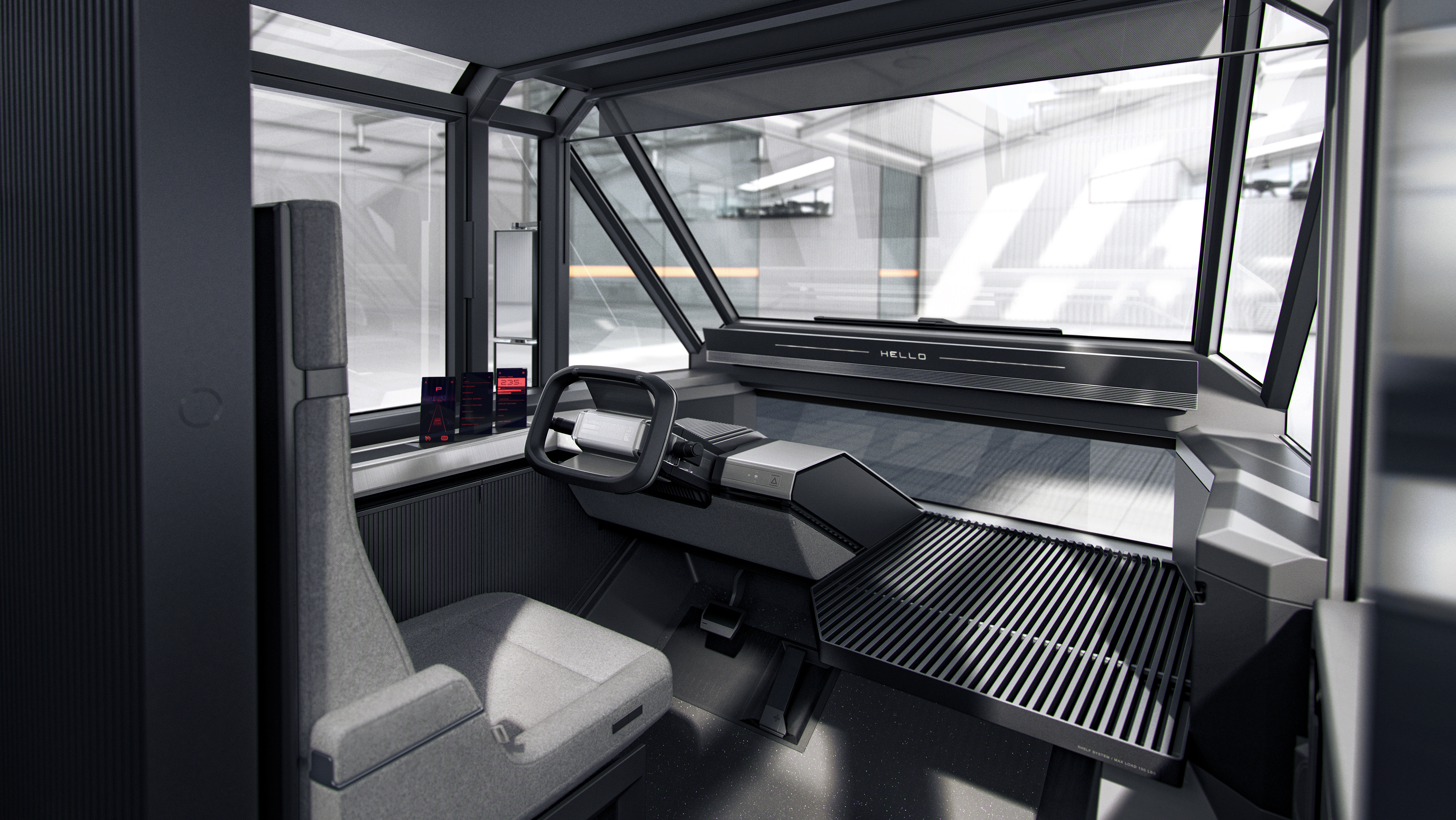Canoo, the Los Angeles-based electric vehicle startup that will make its debut later this month on the Nasdaq as a publicly traded company, revealed Thursday an all-electric multi-purpose delivery vehicle.
The electric delivery vehicle, which includes a high roof height, storage lockers and a software as a service platform to manage fleets, is targeted at both small businesses and large last-mile delivery companies such as package delivery fleets, retailers, major corporations and logistics companies.
This latest vehicle — its second to debut since 2019 — aims to showcase Canoo’s flexibility and its intent to produce products for consumers and business-to-business applications. All of Canoo’s vehicles share that same underlying architecture; it’s the cabins, or top hats, that differ.
Other variations of the multi-purpose delivery vehicle will follow, and Canoo plans to announce a service network at a later date.
Canoo started as Evelozcity in 2017, founded by former Faraday Future executives Stefan Krause and Ulrich Kranz. The company rebranded as Canoo in spring 2019 and debuted its first vehicle several months later. It was this first vehicle, as well as Canoo’s plan to offer it only as a subscription, that captured the attention of investors, companies and the media.
The first vehicle, which looks more like a microbus than a traditional electric SUV, is the “skateboard” architecture that houses the batteries and the electric drivetrain in a chassis underneath the vehicle’s cabin. That architecture caught Hyundai’s interest earlier this year. The Korean automaker announced in February plans to jointly develop an electric vehicle platform with Canoo, based on the startup’s proprietary skateboard design. The platform will be used for future Hyundai and Kia electric vehicles as well as the automaker group’s so-called “purpose-built vehicles.” The PBV, which Hyundai showcased at CES 2020, is a pod-like vehicle that the company says can be used for various functions in transit, such as a restaurant or clinic.
This new delivery vehicle will be offered initially in two sizes. Canoo said more variants will follow and that major corporations — or presumably whatever company is willing to put up the money — will have the option to co-develop a custom vehicle with Canoo to meet their specific requirements.
The electric delivery vehicle will start at about $33,000. Future customers will have to wait though. Canoo said availability will begin in 2022, with scaled production and launch planned for 2023. Customers can pre-order the multi-purpose delivery vehicle for a refundable deposit of $100 per vehicle.
Following its U.S. commercial debut, Canoo said it plans to launch the multi-purpose delivery vehicle in other markets such as Canada, Mexico and Europe.
The delivery vehicle was designed with the ergonomics of the driver in mind and with attention to detail to help them be happier and more productive at work, according to Canoo Executive Chairman Tony Aquila, who added that the vehicle is affordable and offers greater cargo capacity than the current electric delivery offerings in its class.
“We aim to lower the total cost of ownership and increase return on investment for everyone from local small business owners to large fleets,” Aquila said in a statement.
Indeed, Canoo is promising returns to companies that order one of its delivery vehicles, claiming that customers can achieve between $50,000 to $80,000 improvement on return on capital over six to seven years, depending on the use case, as compared to other top selling delivery vehicles.
Canoo also pushes the flexibility of its delivery vehicle, noting that it can be built with different workstations, will be offered in several different battery pack sizes that range between 40 and 80 kilowatt-hours, and have a bi-directional onboard charger, which can be used to power equipment and tools.
Canoo also touted the tech in the vehicle, notably an advanced driver assistance system, over-the-air software updates and a software-as-a-service platform to help fleets manage assets, route plan, run diagnostics and support drivers.
[ad_2]
Source link




